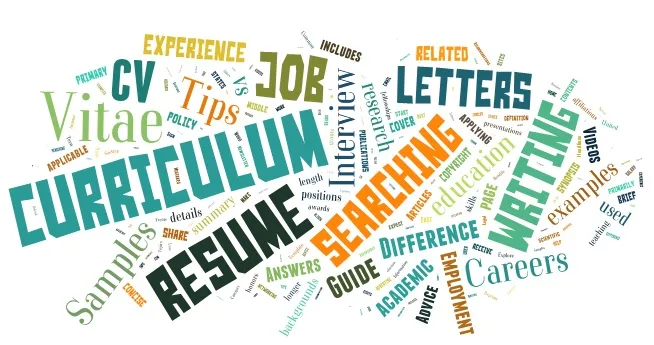CV vs. Resume: What’s the Difference?

Resumes and CVs are both extremely important documents to a job seeker. They are some of the most important job hunting tools you possess. However, it can be confusing to know when and how to use each document. This confusion is often compounded by the fact that there is not a standard resume or CV template – your documents will (and should) look different than your lab mates. While there aren’t formal rules to follow, there are certain expectations for each document, which are noted in the table below:
|
|
CV |
Resume |
|
Definition |
Ongoing academic & work history |
Targeted marketing tool |
|
Length |
Virtually unlimited |
1-3 pages depending on use |
|
Purpose |
Use if seeking: * Academic, research, or postdoc positions * Applying for grants/fellowships |
Used for every other type of job search away from the bench -- outside academia and/or research science |
|
Content |
Wide variety of sections, including (to name a few): * Awards * Grants * Conferences attended * Poster presentations * Publications |
Succinct and relevant to the position. You usually only have space for a few key sections. Two that are a given are: *Education *Experience |
|
Design |
Style is not as important as content |
Style and content are both highly important – resumes must be formatted well and easy to read. Maximize all the white space on your resume’s page. |
|
Omit |
* Personal pronouns * Objective statement * References * The label “Curriculum Vitae” * Lots of bullet points with long narratives * Lists of skills/techniques |
* Personal pronouns * Experience not relevant to the position * Presentations & abstracts * Publications |
To hear more details about these differences, we encourage you to watch OITE’s video workshop, CVs and Resumes: Essential Job Search Documents. CVs are the norm in a scientific research environment, so most scientists are familiar with the basics for creating a CV. Therefore, creating a resume can be a bit more challenging. A lot of scientists’ resumes end up looking a lot like a CV. When placed in an applicant pool with resumes, this CV will stand out as odd and out of touch. It is important to understand the key differences between these documents and to take the time to convert your CV to a resume when the position calls for it. Your lab and your publications often speak for themselves on a CV. This is not true for a resume. Don’t assume that your lab and/or job title is enough to convince the reader that you are qualified for the position. On a resume, you should be using strong, active verbs and numbers to highlight your accomplishments in a quantitative way. As an example, don’t just say you taught a lab section; employers want to know specifics like the fact that you “Designed lesson plans and taught introductory biology to 54 undergraduate students.” For both documents, it is important to be genuine, but this is not the space to be modest. These documents are often the only introduction you get to present to a potential employer, so take the time to review them often. It also helps to seek input from friends, colleagues, and OITE.



